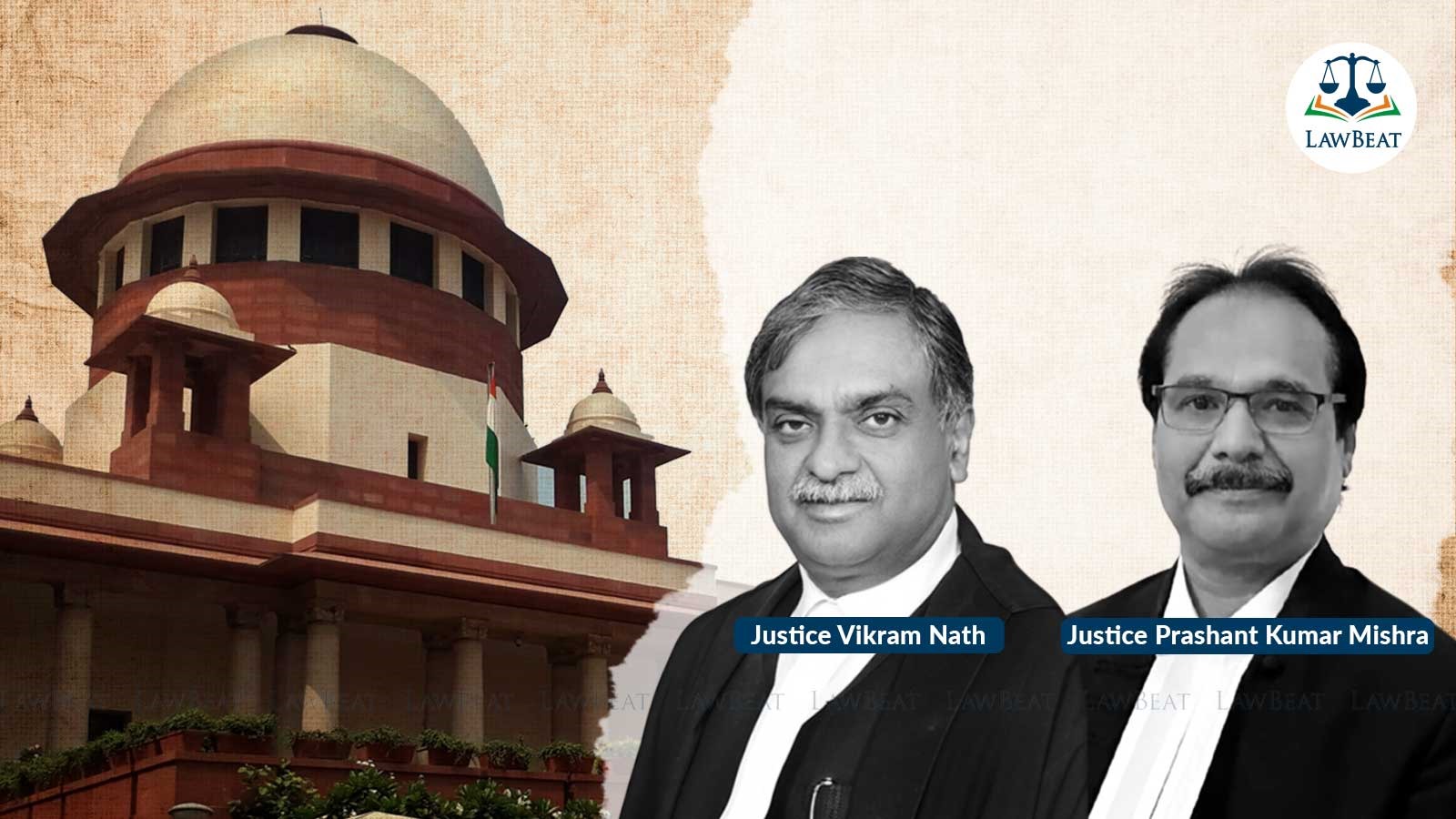Civil Court alone has jurisdiction to decide suit related to Dam Dama Sahib: SC

The top court held that the high court fell in error in dismissing the suit primarily on the ground that the Civil Court's jurisdiction was barred by Section 21 of the Land Reforms Act
The Supreme Court has declared that a suit filed for a declaration that the land belonged to the religious and charitable shrine Dam Dama Sahib can be decided by a Civil Court alone and is not barred under the Punjab Land Reforms Act, 1972.
A bench of Justices Vikram Nath and Prashant Kumar Mishra set aside the Punjab and Haryana High Court's order of March 9, 2010, which held that the Civil Court's jurisdiction was barred under Section 21 of the Land Reforms Act.
The appellants, Ujagar Singh (deceased) through legal representatives, followers of the religious shrine of Dam Dama Baba Sahib Singh of Una, filed a suit for declaration and perpetual injunction against the respondents and one Smt Sangeet Kaur, daughter of Baba Madhusudan Singh Sahib Una.
The appellants contended that the land detailed in the headnote of the plaint was dedicated to the religious and charitable institution Dam Dama Sahib of Una, under the management and supervision of Baba Madhusudan Singh.
The appellants pleaded that the shrine was worshipped by them and countless Sikhs. They asserted that Kala Dhari, the founder of Una and a descendant of Baba Nanak, established the shrine, which was later managed by his successors.
Sahib Singh, the successor of Kala Dhari, established another shrine at Quilla Jawahar Singh in Gujranwala (now in Pakistan), where followers gifted land for religious and charitable purposes. The income from these lands was used for maintaining the shrine and other charitable activities.
Upon the partition of India, 1440 kanals and 8 marlas of land were allotted to the Bedi families of Una in lieu of their land in Pakistan, including 735 kanals and 7 marlas allotted to Tikka Devinder Singh, a descendant of Baba Sahib Singh.
The appellants argued that this land, though recorded in the name of Tikka Devinder Singh, was actually meant for the shrine and managed by Baba Madhusudan Singh.
The appellants claimed that despite not having the right to transfer the land, Baba Madhusudan Singh transferred 156 kanals and 8 marlas to the Agriculture Department of Punjab and 330 kanals and 14 marlas to his daughter, Sangeet Kaur.
These transfers, the appellants contended, were illegal and not binding on the worshippers of the shrine.
The Punjab government initiated proceedings to declare part of this land as surplus. The Collector, Agrarian, Hoshiarpur, declared 20.0943 standard acres of the land as surplus on June 28, 1976.
The appellants filed a suit for declaration and perpetual injunction, asserting that the land was of religious and charitable nature and thus exempt under the Land Reforms Act. They sought a declaration that the land belonged to Dam Dama Sahib of Una and an injunction to prevent the respondents from transferring or declaring it surplus.
After considering the evidence, the Trial Court dismissed the suit on December 15, 1980, holding that the appellants failed to prove that the land was dedicated to a religious and charitable institution.
The appellants filed an appeal before the Additional District Judge, Hoshiarpur, which partly allowed the appeal and concluded that 133/290 share of the land in the suit was charitable and belonged to Dam Dama Baba Sahib Singh of Una. The court held that this share could not be declared surplus by the Collector and restrained the respondents from making further transfers of this share of the land.
The respondents, dissatisfied with the decision, filed the Regular Second Appeal before the High Court, which set aside the judgment and decree of the Additional District Judge, holding that the Civil Court's jurisdiction was barred under Section 21 of the Land Reforms Act.
The High Court emphasized that the appellants had not challenged the order declaring the land surplus before the appropriate authorities under the Act, and thus, the suit was not maintainable.
Upon hearing the arguments from both sides, the apex court said, "This Court is of the opinion that the High Court fell in error in dismissing the suit primarily on the ground that the Civil Court's jurisdiction was barred by Section 21 of the Land Reforms Act."
The bench also pointed out that the issue of jurisdiction was not pressed by the respondents during the Trial Court proceedings. The Trial Court specifically recorded that the issue of jurisdiction was not pressed and decided it in favor of the plaintiffs. The respondents did not challenge this finding in the First Appellate Court, and hence, they were precluded from raising it in the second appeal before the High Court.
Referring to Section 21 of the Land Reforms Act, the bench said the provision bars the jurisdiction of Civil Courts only in specific circumstances: (a) suits for specific performance of a contract for transfer of land, and (b) questioning the validity of any proceeding or order taken or made under the Act.
"The present suit does not fall under either of these two categories. The appellants' suit was essentially for a declaration that the land belonged to the religious and charitable shrine Dam Dama Sahib, and there was no challenge to the validity of any order under the Act. The Civil Court alone has the jurisdiction to decide and declare whether the land belonged to the religious shrine or to Tikka Devinder Singh in his personal capacity," the bench said.
The court also noted the suit filed by the appellants was not a challenge to the validity of the surplus order but a suit for declaration regarding the ownership of the land.
The bench thus set aside the High Court's order and remitted the matter back to the High Court for fresh consideration on merits in accordance with the law.
Case Title: Ujagar Singh (Dead) Thr LRs & Anr Vs Punjab State & Ors
